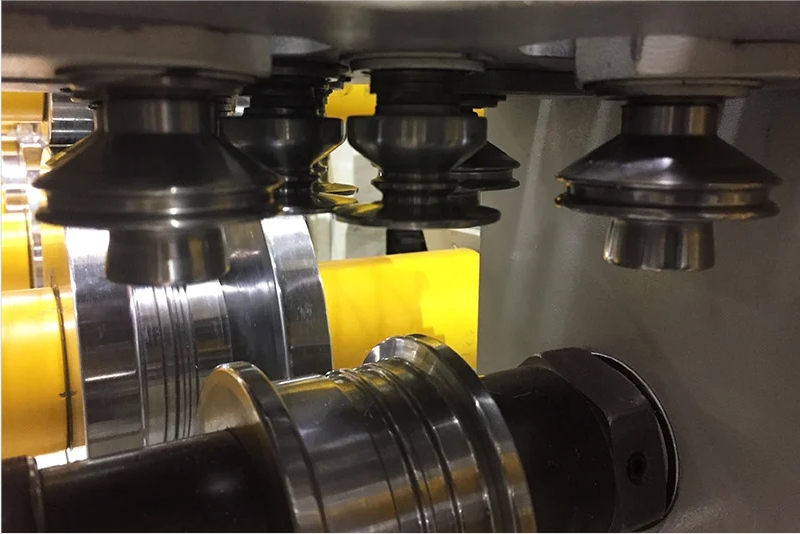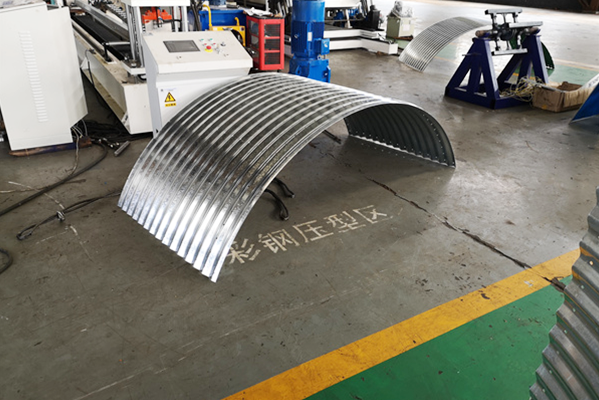Navigation Menu
Contact Us
- Email:
- info@wxavatar.com
- Address:
- Yurong Village, Yuqi Street, Huishan District, Wuxi, China.
Release Date:Oct 24, 2024 Visit:394 Source:Roll Forming Machine Factory
In the realm of modern manufacturing, precision is paramount. This principle is especially evident in the evolution of roll forming machines, which have undergone significant advancements to meet the increasingly stringent demands of high manufacturing standards. Roll forming, a process that involves shaping metal by passing it through a series of matched, rotating rolls, has become more sophisticated and accurate, thanks to a series of precision enhancements.

One of the key areas of improvement has been in the design and manufacturing of the rolls themselves. Traditional rolls were often made from cast iron or steel, but modern advancements have led to the use of high-strength, wear-resistant materials such as tool steel and carbide. These materials not only enhance the durability of the rolls but also improve their dimensional stability, ensuring that the metal is shaped with greater precision.
In addition to material improvements, advancements in roll manufacturing technology have also played a crucial role. Computer Numerical Control (CNC) machining has become the norm, allowing for the precise shaping and finishing of rolls to tolerances that were previously unattainable. This level of precision ensures that each roll in the series is an exact match, reducing the likelihood of errors and inconsistencies in the final product.
Another significant enhancement has been the integration of advanced sensors and monitoring systems into roll forming machines. These systems provide real-time feedback on the shape and dimensions of the metal being formed, allowing operators to make adjustments on the fly. This level of control ensures that the machine can maintain consistent precision, even when working with materials of varying thicknesses or hardnesses.
Software advancements have also played a role in improving roll forming precision. Advanced CAD/CAM systems now allow manufacturers to design and simulate the roll forming process before it begins. This enables them to identify potential issues and optimize the roll design to ensure the highest level of accuracy. Furthermore, some roll forming machines are now equipped with adaptive control systems that can automatically adjust the roll settings based on real-time data, further enhancing precision and reducing waste.
The benefits of these precision enhancements are numerous. For manufacturers, they result in higher quality products with fewer defects, which can lead to increased customer satisfaction and reduced warranty costs. Additionally, the ability to maintain consistent precision across a wide range of materials and applications allows manufacturers to be more flexible and responsive to customer needs.

In conclusion, the precision enhancements made to roll forming machines have been instrumental in meeting the high manufacturing standards of today's industrial world. From material improvements and advanced manufacturing techniques to the integration of sensors and adaptive control systems, these advancements have collectively raised the bar for roll forming accuracy. As manufacturing continues to evolve, it is likely that we will see even more innovations in this area, further enhancing the precision and capabilities of roll forming machines.